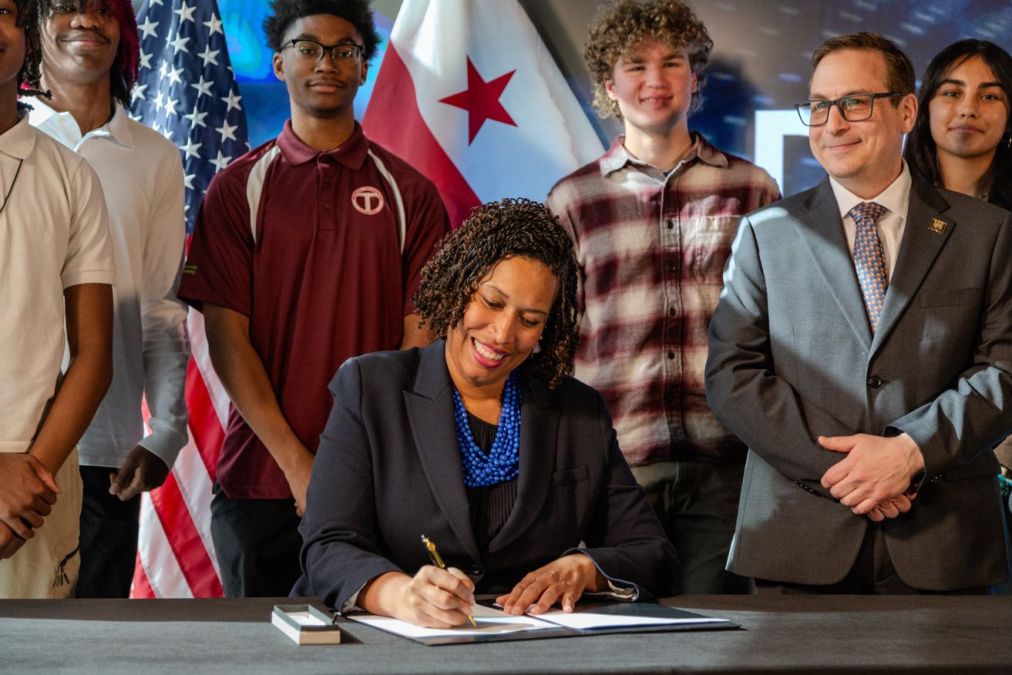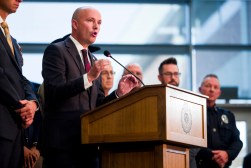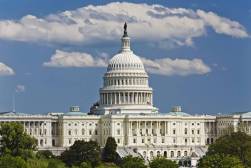Washington, D.C., announces AI strategic plan, AI testing ‘sandbox’

Washington, D.C., Mayor Muriel Bowser on Thursday morning signed an order directing the district to implement a strategic plan that will allow its government agencies to start using artificial intelligence.
In an interview with StateScoop, interim Chief Technology Officer Stephen Miller said the effort is to ensure the technology is safe and not “exacerbating any inequality across any given demographic,” while also requiring agencies to use AI to innovate. The plan incorporates public input, including an advisory group for “AI value alignment” that aims to include those from diverse backgrounds and experts in disability rights.
Washington D.C.’s policy work follows at least 10 executive orders in state governments, including Maryland, where Gov. Wes Moore last month rolled out a new AI initiative that will also seek to prioritize accessibility of services.
In Washington, agencies planning to deploy AI must align their projects with a list of values: cybersecurity, clear benefit to the people, safety and equity, accountability, transparency, sustainability and privacy, according to a strategic plan document shared with StateScoop.
Miller said Washington’s Office of the Chief Technology Officer, or OCTO, is also creating a “sensitive compartmented information facility,” or SCIF, a “personal sandbox” where government employees can test AI software.
She said the SCIF environment is provided by the Maryland tech firm Navteca and that OCTO requires it and all other AI tools to be “platform agnostic,” so they work with all of the city’s existing technology.
“We’re really excited about it, we think it’s gonna be really cool,” Miller said of AI. “We’ve been treading water to roll out some bigger things and some bigger tools because it was really important to us to have the guardrails in place and the accountability and feedback before we just did something because it was cool. That was important to us. … After we get this advisory group up, I think it’s going to really empower us to take advantage of this new technology.”
Miller said that OCTO has already used AI to generate images website mock-ups, but they are not displayed on any public websites. She said that if OCTO does publish images created with generative AI, the agency wants to ensure they’re “clearly labeled.”
“We want to make sure that wherever people are coming in to interact with government, that if something is being done by AI, that we are transparent about it,” she said.
Washington D.C.’s strategic plan requires staggered actions by cohorts of agencies until 2026. The agency groups must submit “agency-specific AI-strategic plans” that identify where AI might improve performance, where it may present new risks and how the agencies might mitigate those risks.
The strategic plan also requires the creation of a new group called the Advisory Group on AI Values Alignment, comprised by majority of district residents, and none of whom are employed by the Washington city government. The group must include members with expertise in racial equity, disability rights, cybersecurity, LGBT+ affairs and privacy.
“We do want to make sure that we’re also bringing people to the table in our advisory group and our public advisory department to help us get the right outcomes, as well to ensure that we’re being held accountable against the standards that we need to, to meet those needs,” Miller said during a press conference on Thursday. “We’ll also have our task force members from the Office of Disability Rights to make sure that we’re delivering on that as well. It’s a DC value, it’s an AI value.”
Also on Thursday, Alabama Gov. Kay Ivey became the latest governor to sign an executive order directing a new task force to explore AI’s potential uses and risks. The group, includes members of her Cabinet, state lawmakers and two university officials, is directed to submit a report by Nov. 30.






